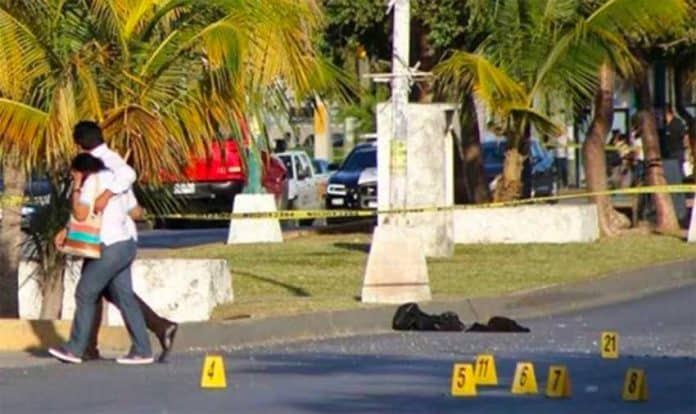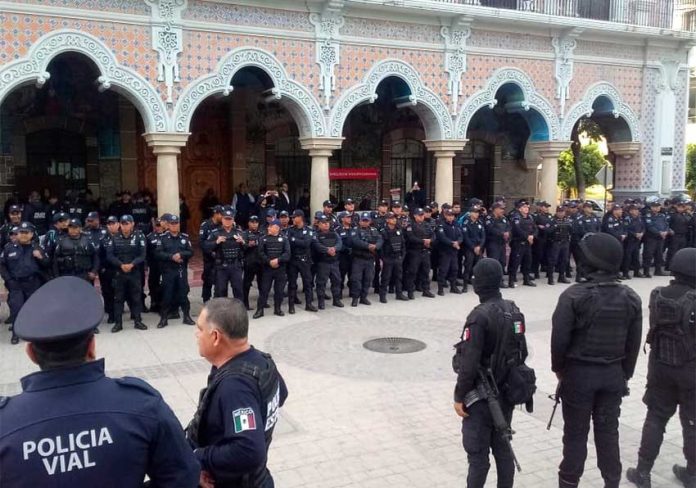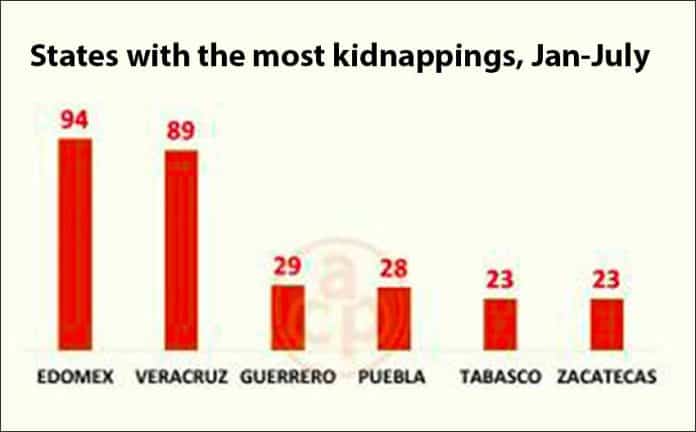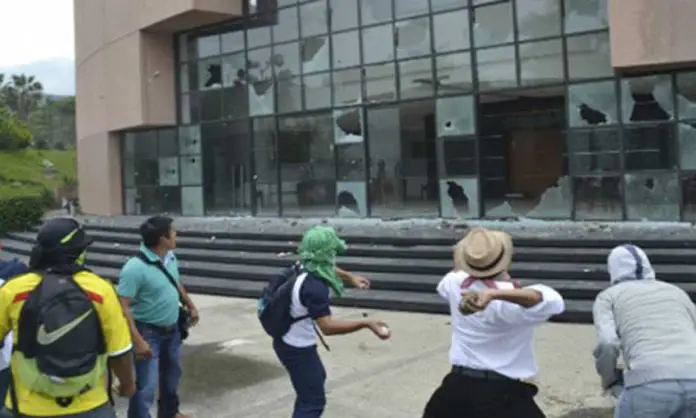As large quantities of sargassum inundated Mexico’s Caribbean coast beaches over the past three months, a 6-million-peso government-owned vessel specifically designed to remove the seaweed sat idle in a Quintana Roo marina.
The administration of former Quintana Roo governor Roberto Borge paid 5.96 million pesos (US $315,000 at today’s exchange rate) to the México state-based company Tecno Productos GAB for the sargassum removal boat, of which it took possession in January 2016.
But at that time sargassum wasn’t washing up on the state’s beaches and since then the vessel has remained out of service in dryland storage at Hotel El Cid in Puerto Morelos, the newspaper Milenio reported today.
David Jáuregui, a legal representative for Tecno Productos in the Riviera Maya and director of the company Sargazo Solutions, told Milenio that the vessel was delivered to the previous government in working order and that he didn’t know why the current government hasn’t put it to use.
“We’re the only Mexican company that has the technical and human capacity to manufacture this type of boat. They contracted us, paid us and we delivered,” Jáuregui said.
He explained that the vessel’s buoyancy and maneuverability were tested three years ago, although he added that its “stainless steel bands” or “sargassum harvesters” hadn’t undergone trials at the same time.
However, an inspection of the vessel a month and a half ago confirmed that it was still in working order, Jáuregui said.
Milenio reported that the businessman is making arrangements with the state government for the vessel to undergo testing at sea within the next two weeks.
Tecno Productos will absorb the 150,000-peso (US $8,000) transportation costs to show that the boat is ready to clean the beaches, Milenio said, because claims that it is not in working order are affecting other contracts it has signed with the private sector.
Meanwhile, the president of the federal Senate, Ernesto Cordero, said the Federal Auditor’s Office (ASF) should open an investigation into the whereabouts of 79 million pesos (US $4.2 million at today’s rate) that were allocated to the Borge government to combat an invasion of sargassum in 2015 but disappeared.
Current Quintana Roo lawmakers and government officials say they don’t know what happened to the missing funds, which were part of a larger 150-million-peso federal package.
Borge fled the country at the end of his term but was extradited to Mexico from Panama in January and is currently awaiting trial on corruption charges.
“Like all of the public budget, [resources] have to be used for what they were authorized for. If that’s not the case, it should be investigated, that’s what the ASF is for,” Cordero said.
Luis Sánchez, coordinator for the Democratic Revolution Party (PRD) in the Senate, said: “Specialists are saying that the sargassum growth is a consequence of climate change, the temperature of the water and human activity. If we add corruption, we have a disaster for our beaches.”
Alfonso Ramírez Cuéllar, a Morena party lawmaker, said the incoming Andrés Manuel López Obrador-led government will ensure that those responsible for corruption at the state level will be held accountable.
“There will be no clean slate. On the contrary, all the cases where the [federal] government and the PGR [federal Attorney General’s office] have jurisdiction and, above all, those that involve embezzlement from the national finances, will neither be forgiven nor forgotten,” he said.
In response to this year’s sargassum crisis, the federal Natural Disaster Fund (Fonden) allocated 62 million pesos to Quintana Roo for clean-up efforts but the Secretariat of Tourism (Sectur) said it is now assessing the need for more federal funds to be allocated.
The first sargassum barrier was installed last week at Punta Nizuc near Cancún, where it is intended to prevent the seaweed from arriving on shore.
This week, the barriers are being placed in Xcalak in the municipality of Othón P. Blanco to protect the beaches at Mahahual, Ecology and Environment Secretary Alfredo Arellano said yesterday. Two vessels designed to gather sargassum are expected to arrive next week to remove the seaweed from behind the barriers.
His department also said it is hoping to raise 610 million pesos (US $32.3 million) of state, federal and private sector funds which can be placed in a trust for the purchase of equipment, barriers and vessels to combat the sargassum invasion.
The mayor-elect of Solidaridad, one of seven Quintana Roo municipalities with a Caribbean Sea coastline, estimated earlier this month that tourism had dropped by as much as 35% due to sargassum washing up on a 480-kilometer-long stretch of otherwise pristine Caribbean beaches.
Source: Milenio (sp)









